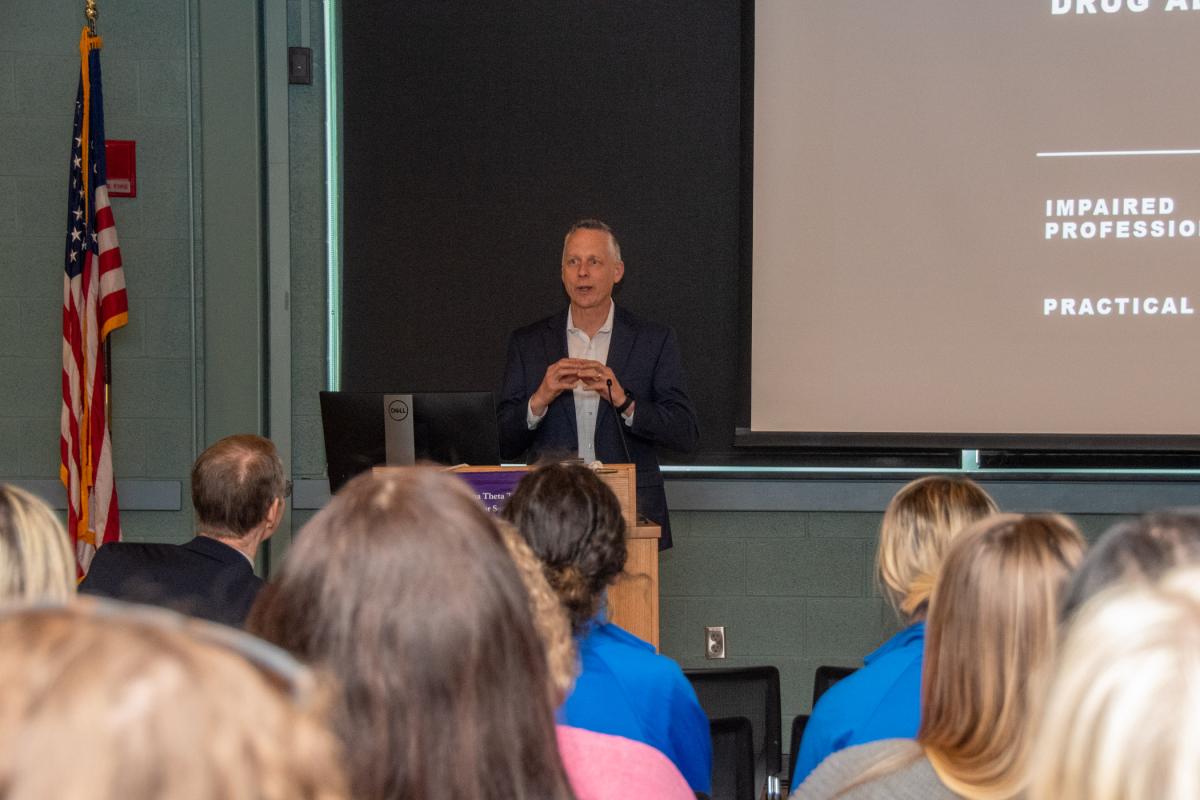Future health care providers get 'red flag' guidance on drug diversion
Thursday, April 27, 2023

Addressing drug diversion in health care, McGill provided background on what activities are considered “drug diversion”: refusing to keep or furnish records or furnishing fraudulent records of the distribution of medications; obtaining controlled substances by misrepresentation, fraud, forgery, deception or subterfuge; transferring a substance to another person without proper authorization; and possession of a controlled substance outside the scope of one’s duties. He then presented the background – names changed to protect the innocent – of a past case.
Assuming the role of a nurse supervisor in an assisted living facility where drug diversion was suspected, attendees broke into groups and formulated the first 10 questions they would ask.
During the sleuthing session, participants (who included students, staff and faculty in the School of Nursing & Health Sciences) learned common red flags of a potential drug diversion and practiced developing a protocol to begin an investigation.

McGill is a senior supervisory special agent assigned to the Office of Public Engagement. He has been a professional investigator for over 30 years, with 23 years in law enforcement. He was a narcotics supervisor of both street agents and drug diversion agents. He has extensive experience as an undercover narcotics agent but is best known for his work as a drug diversion agent and supervisor, including being court-qualified as an expert in drug diversion. He provides advanced training to health care facilities and colleges and universities.
He is the author of a prescription drug investigations course for law enforcement that has been certified for continuing education credits and has been a presenter at national conferences. McGill serves on the Executive Board of the National Association of State Controlled Substance Authorities.

